The Moustached Journalist says;
Behind the glamour of African football, there have been hidden truths about the identities of players which have left many wondering if they should continue to love football only, or with some pinch of doubts.
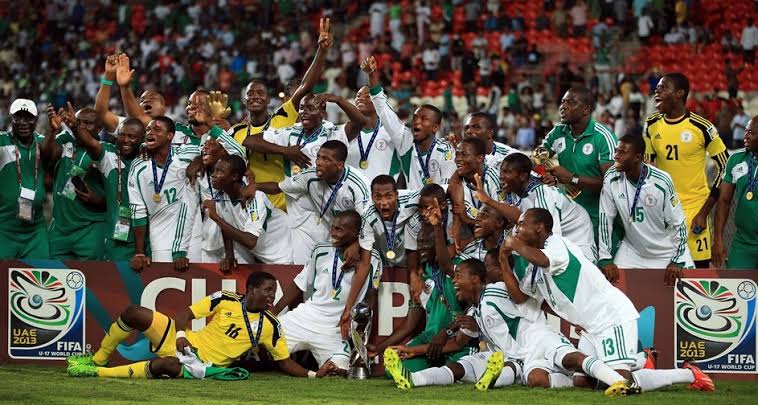
In African football, age cheating is so widespread that players in amateur levels are known to have two ages: their actual age and the football age. Not that one is attempting to justify their reasons for cheating, but it is always possible to argue that the underlying source of the issue is the terrible social and economic predicament that most Africans are in.
As a result of scouts’ unintentional constant search for the next big thing, they “fix” their age, usually to that of teenagers. A player signing a contract to play in a top European league in their mid-twenties is practically unheard of in Africa.
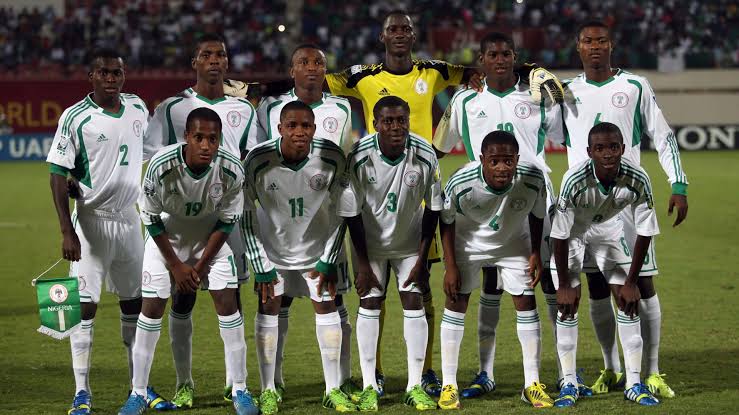
A player that is older can compete in youth events by fabricating their age. Africa’s complete dominance in FIFA age-specific championships is understandable, yet these high standards and expectations seldom translate to the highest levels.
In order to retain a younger age, players have been forced to lower their age or change their name in the past. Other players have had to use three separate birth certificates in order to leave their homes and succeed in the football world.
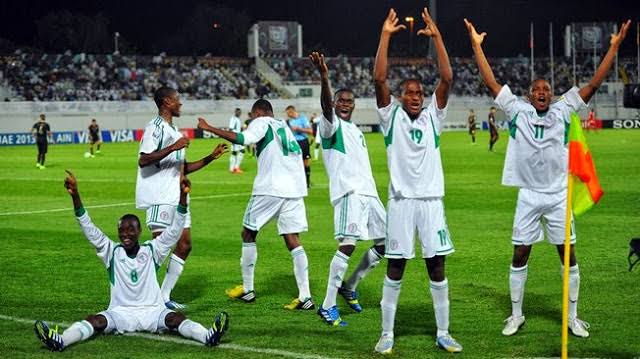
A player who is close to retirement will not be accepted into the majority of Europe’s elite leagues. That is why some players prefer to appear old but young in their documents.
Having a double identity in football is not only a fraud but one of the most talked about unethical practices in African football.

In 2014, former CAF Media Director, Junior Binyam told the BBC Sports that age fraud is a problem in Africa because countries do not have a reliable database to track ages.
“It is easy in many countries to change ages or ‘amend’ those registers. It is not rare to find people with more than one birth certificate. In some cases, when the player change identity, he can, most of the time, be registered as a new player. The fraud on ages then affects the development programs if the players involved in an age category are not really from the category.”
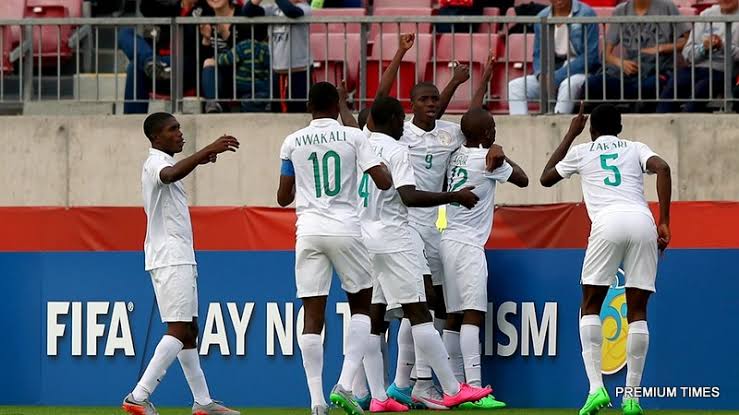
In addition to damaging African football’s reputation, this conduct has made a mockery of the sport’s discipline and aesthetics of fair play.
Age fraud is age fabrication or the use of false documentation to gain an advantage over opponents. In football, it is typical for players from countries where records are difficult to confirm. The media frequently refer to the player with false documentation as an “age-cheat”.

There are several reasons why players choose to use false documentation. European scouts are looking for young talented players from poorer countries to sign for a European club.
The players are aware that signing at a later age will decrease their chances of being signed because the club will have less time to develop them than if they were much younger as 17 years or below.

The World Football Governing Body, Federation of International Football Associations (FIFA), says that “over-age players have been wrongly entered into various youth competitions, often benefiting from an unfair advantage due to their greater physical maturity compared to players of the proper age.”
The use of Magnetic Resonance Imaging (MRI) was introduced by FIFA in 2009 during the U-17 World Cup in Nigeria to help check the ages of players. But, Federations are now compelled to go through this practice before determining a player’s age.

MRI is considered to be 99% accurate until the age of 17, after which it becomes harder for medical professionals to calculate a person’s age.
In April 2013, nine players were excluded from the African U-17 Championship in Morocco after MRI wrist scans showed them to be over the age limit. Congo-Brazzaville, Ivory Coast and Nigeria each had three players banned.

Nigeria lost several key players for the FIFA U-17 World Cup in October for the same reason, while Somalia were expelled from qualifying for the 2013 African U-17 championship for fielding over-age players.
Former Nigeria international Jonathan Akpoborie, who now works as an agent, admits he knows of many players who lied about their age in African football in a BBC Sports investigative report by Andy Cryer headlined Why the Problem Of Age Fraud is ‘rampant’ in African Football.
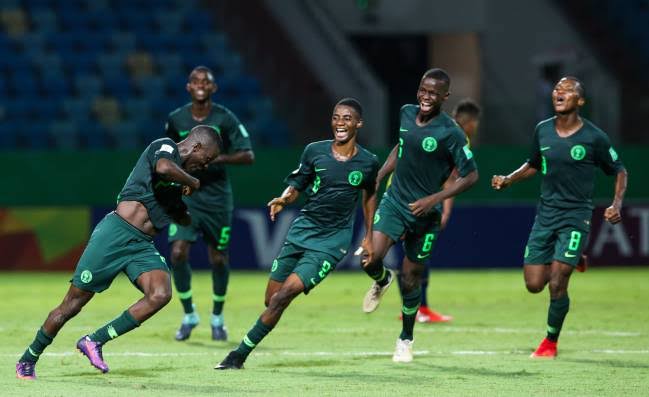
“It has been a big problem and still is. Some of them played at the U-17 level and then a few years later retire because they can’t run any more.
“Look at Spain’s national team as an example of how it should be done. The likes of Xavi and Andres Iniesta came through the youth teams. You can track their career all the way through.

“When you look at the African players playing for the U-17s, maybe one or two years later they have retired because they can’t produce what they produced at U-17 level because they are so old. The wrong players are being given the platform.”
Age Fraud, Double Identities in Cameroon Football: Agents, Guidance, Parents, Federations must share the blames is an investigative report written by Nchanji Hanon Nfor for Cameroon News Agency that describes the effects of these menaces bedeviling African football and how they can be totally eliminated to prevent further harm to the game.
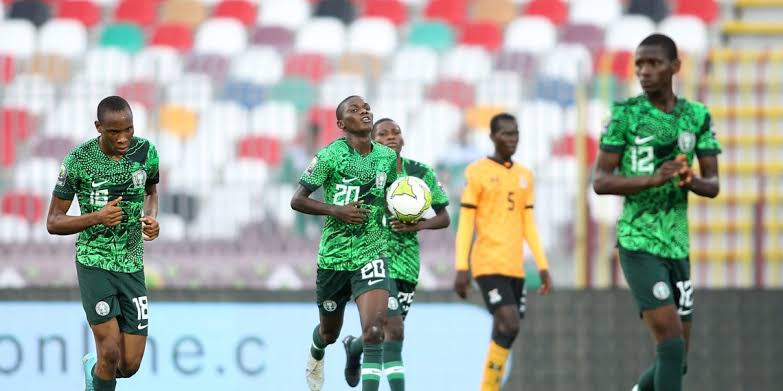
In 2023, Confederation of African Football (CAF) announced the disqualification of Chad from the Central African Football Federations Union (UNIFFAC) qualifiers, citing a mass failure of the players in the MRI age test results which turned out the majority of the players were overaged. This happened after over 80% players failed the MRI test.
CAF’s competition regulations, updated in 2021, in chapter 20 speak of forgery, fraud, and administrative error, all sanctionable by the CAF.

Article 45 of chapter 20, says, “If CAF is informed, no matter the source, that a fraud or a forgery was committed by any means and/or support whatsoever by one or more national team(s), an investigation will be opened”.
While in Article 46, CAF stressed that, “In case the alleged facts are true, the national association concerned will be suspended from participation in the following two editions of the Africa Cup of Nations (AFCON)”.

Article 47 speaks about a single suspension from AFCON due to administrative error, “For any administrative error in the registration of players, the national association concerned will be suspended from participation in the next edition of the AFCON, and its team will be eliminated from the competition if the latter is still ongoing”.
The more these practices continues, the more we gradually lose credence. Our football stars become subject to unfair scrutiny and taunts. This reputation disturbs the success of our players abroad.
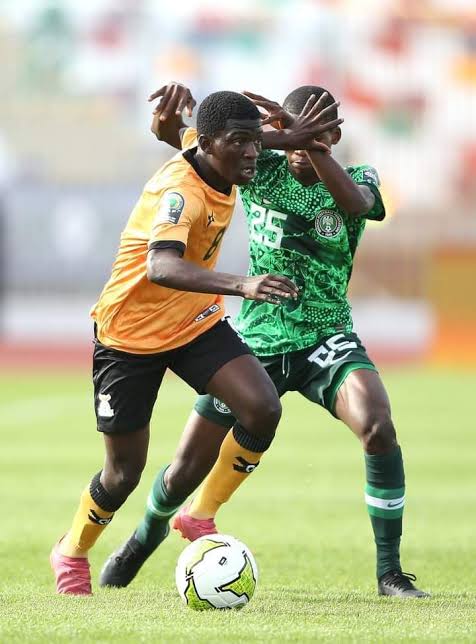
Ultimately, Africa needs to start playing clean and national football associations need not support such practices as age cheating and double identity. Therefore, it is a general call to all the federations around the continent to fix their houses and make things better.
